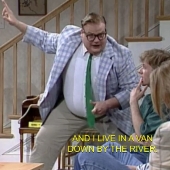posted 16 years ago
Okay, here it is:
1. I understand that as a WSU Master Gardener my pest control recommendations must be limited to home, lawn, and garden problems. Questions concerning crop production, commercial pest control, aquatic weed control methods and pesticide liability are to be referred to the county Extension Office.
2. I understand that as a WSU Master Gardener, I may only recommend a chemical for home and garden pest control if that use has been recommended by WSU.
3. I understand that as a WSU Master Gardener,I may ONLY recommend biological control organisms or other non-chemical alternatives for home and garden pest control if the recommended use is contained in current WSU Extensionpublications or other publications recognized by WSU scientists.
4. I understand that as a WSU Master Gardener, I will provide both chemical and non-chemical pest control recommendations allowing the client choice of strategies.
5. I understand that as a WSU Master Gardener, I am condisred a volunteer representative of WSU. Therefore, WSU will assume liability for my pest control recommendations, but only if my recommendations are limited to control measures that are recommended by WSU for home and garden use and listed in current WSU Extension publications or other publications recognized by WSU scientists.
Basically, in my understanding, Master Gardeners are considered unpaid employees of WSU. WSU has the right and responsibility to require the above terms for their protection from injury that a volunteer might inflict by, say, recommending that you pour gasoline down the mole holes and strike a match. (It has happened)
Let me also throw out the idea that I do not use harmful chemicals on my land. I am not turned on by the idea in any way. However, it does occur to me though that when the word pesticide is used, most "natural gardeners" (my feeble attempt to find and all encompassing term) cringe, myself included. However, pesticide could be lots of things, like biological controls such as releasing ladybeetles to eat aphids, bt, neem oil or the antibiotics I ended up taking when I got MRSA virus... This kind of opens my mind a bit.
Like most things, people can use the situation to their best interest if they are creative. If the Master Gardener wants to be within the requirements but still help people make the decision to not use harmful chemicals then they can let them know that most problems can be solved mechanically, they quote the over use of products that equated to dollars down the drain, speak to the useage label being a legally binding contract and use other creative measures to share information within the scope of the extensions outline. There are plenty of them if someone is looking for them.
I became a Master Gardener for several reasons. One is that I have been volunteering for a long time and have found the more bridges and connections made, the more I can get done. Another is that I believe there needs to be more people who grow food instead of peonies (okay they smell good but can you eat them? Besides, they don't bloom for an average of 7 years after you plant them!) and then there is the whole someone needs to be really clear and vocal about not choosing to use harmful products and to protect our waterways. I also joined because I am skeptical of lost of differnet organizations but instead of just staying skeptical, I have decided to check them out from the inside when possible, reevaluate and see if there is anything useful there (even if it is confimation of my skepticism). For the most part, Snohomish County Master Gardeneners and Extension are teaching about sustainable landscaping, raingardens, living roofs, water conservation, effects of chemicals in the home and garden and lots more.
So, do what you like with this tidbit of information. The Puyallup Extension is dumb for not accepting Kelda since she would be an incredible asset and has lots of experience in volunteering. She's been doing amazing things in her area! I think it must have been a space issue as I know the Snohomish County program is alway full and has a waiting list. I can't imagine what else it could have been. Dumb, dumb, dumb.
Now for a bit of sad news, WSU released the news that the Extensions will loose 75% of their funding. This means Extensions will look very different from what they look like today. This is all the more reason for grassroot groups to help out, reach out and get visible. Our communities are going to need us even more than ever!
In Community,
Marilene Richardson
Director, SongCroft Self-Sufficiency Skills Apprenticeship Programs
www.songcroft.com
Subscribe to our newsletter!
http://bit.ly/Newsletter_Page
Follow us on Twitter and Facebook









 Hope the other program is ten times as interesting!
Hope the other program is ten times as interesting!



















 1
1








 1
1





















































































